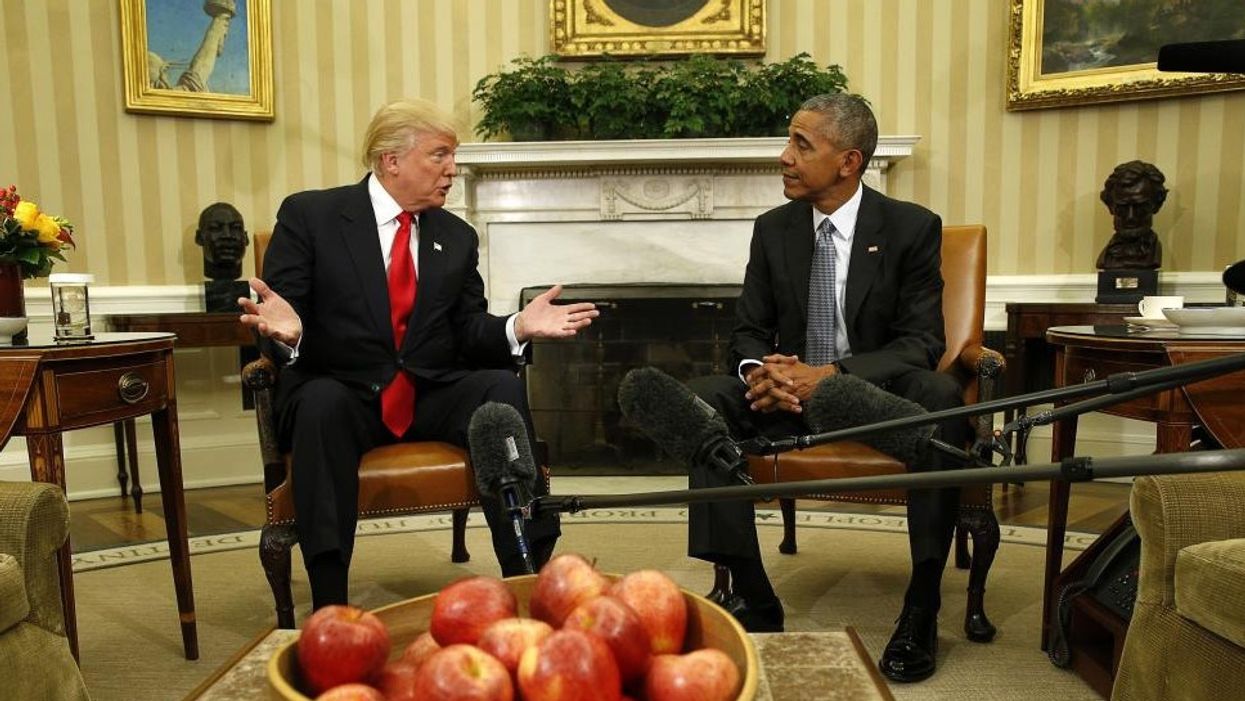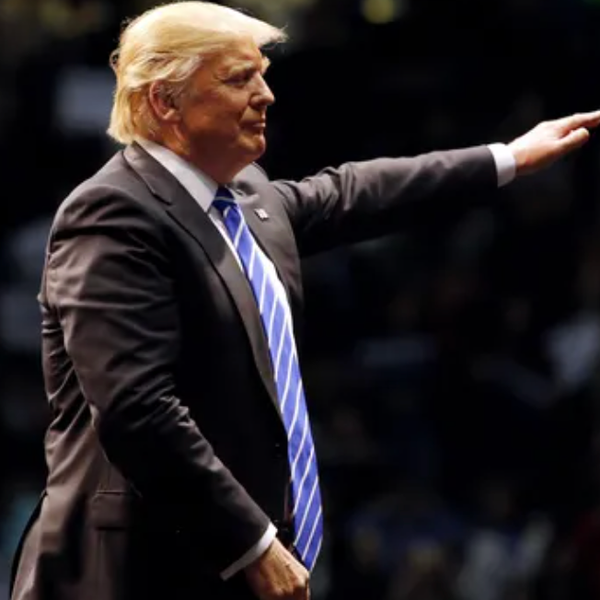
On the far right, the racist conspiracy theory known as birtherism has faded into the background. The reactionary movement has moved on to new nefarious myths, including the QAnon miasma and claims that Dr. Anthony Fauci is using the coronavirus pandemic to undermine Donald Trump's presidency.
But journalist Adam Serwer, in a piece for The Atlantic this week, stresses that the importance of birtherism to the right wing goes way beyond their disdain for Obama — it is part of a broader ideology of white nationalism and white supremacy. And the prominence of conspiracy theories features in other articles published this week by the Atlantic, including one by Jefferey Goldberg and another by Adrienne LaFrance.
"Birtherism is the baseless conjecture that the 44th president of the United States not only was born abroad and was therefore, ineligible for the presidency, but also, was a secret Muslim planning to undermine America from within," Serwer explains. "It is the combination of these two elements that transformed birtherism from mere false speculation about Obama's birth to a statement of values about who belongs in America and who does not."
According to Serwer, it is a mistake to think that birtherism was strictly about Obama. It was a celebration of white supremacist and white nationalist ideology in general, and Trump continued to embrace birtherism even when he quit questioning the legitimacy of Obama's birth certificate.
"Birtherism was a statement of values, a way to express allegiance to a particular notion of American identity — one that became the central theme of the Trump campaign itself: to Make America Great Again, to turn back the clock to an era where white political and cultural hegemony was unthreatened by black people, by immigrants, by people of a different faith," Serwer writes. "By people like Barack Obama. The calls to disavow birtherism missed the point: Trump's entire campaign was birtherism."
Trump, according to Serwer, doesn't have to talk about Obama's birth certificate in order to promote birtherism in 2020 — his whole presidency has been one big assertion of birtherism.
"You could call birtherism a conspiracy theory, sure," Serwer writes. "But in 2020, looking at the Trump Administration's efforts to diminish the power of minority voters, imprison child migrants, ban Muslim travelers from entering the country, and criminalize his political opposition, it could be more accurately described as the governing ideology of the United States."
Another far-right delusion that is every bit as ridiculous as birtherism — and every bit as pro-Trump — is the QAnon theory, which claims that Trump became president in order to secretly fight an international ring of child sex traffickers led by Hillary Clinton. It centers on a mysterious person named Q offering information about Trump's mission. Journalist Adrienne LaFrance discusses the QAnon cult in The Atlantic, stressing that those who buy into it — like birthers — are not governed by logic or reason.
"QAnon is emblematic of modern America's susceptibility to conspiracy theories, and its enthusiasm for them," LaFrance observes. "But it is also already much more than a loose collection of conspiracy-minded chat-room inhabitants. It is a movement united in mass rejection of reason, objectivity and other Enlightenment values…. The group harnesses paranoia to fervent hope and a deep sense of belonging."
When LaFrance recently interviewed Hillary Clinton about QAnon and the intense hatred they have for her, the former secretary of state asserted, "I just get under their skin unlike anybody else.… If I didn't have Secret Service protection going through my mail, finding weird stuff, tracking the threats against me — which are still very high — I would be worried."In 2019, LaFrance notes, FBI agents "classified QAnon as a domestic-terror threat in an internal memo," adding that "QAnon adherents are feared for ferociously attacking skeptics online and for inciting physical violence."
The prominence of conspiracy theories in general is the focus of Goldberg's piece. And one political figure who has been more than happy to promote them, according to Goldberg, is Trump — who, in 2015, told radio host and conspiracy theorist Alex Jones, "Your reputation is amazing."
"Trump does not defend our democracy from the ruinous consequences of conspiracy thinking," Goldberg asserts. "Instead, he embraces such thinking. A conspiracy theory, birtherism, was his pathway to power — and in office, he warns of the threat of the 'Deep State' with the ferocity of a QAnon disciple. He has even begun to question the official coronavirus death toll, which he sees as evidence of a dark plot against him. How is he different from Alex Jones, from the conspiracy manufacturers of Russia and the Middle East? He lives in the White House. That is one main difference."
- Trump Promotes Conspiracy Theorist's Claims About Jews ... ›
- The Dark Conspiracy Theories That Consume The Mind Of Donald ... ›
- In Testimony, Inspector General Debunks Conspiracy Theories On ... ›
- In 53 Unfiltered Minutes, Trump Spewed Conspiracy Theories And ... ›








